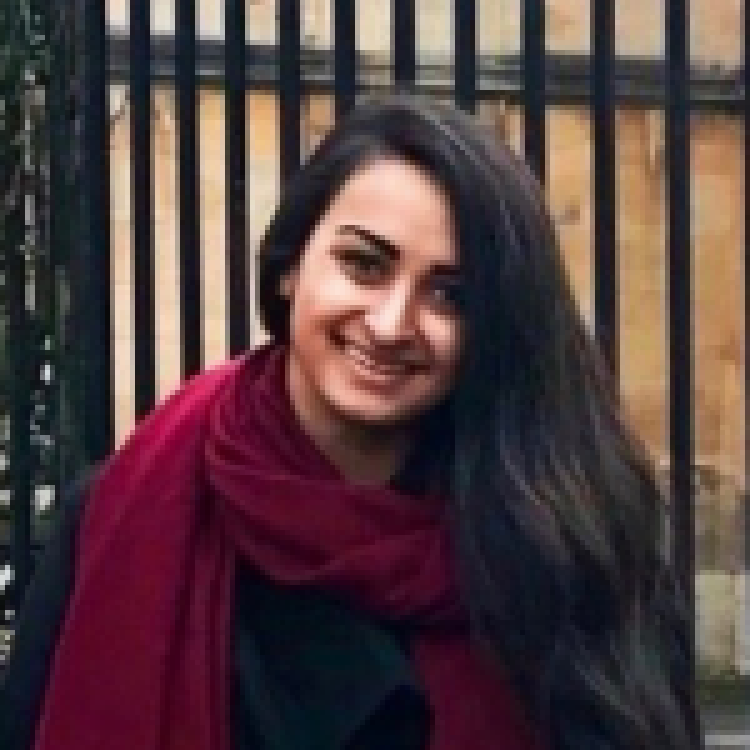Ambika Satkunanathan, Former Commissioner at the Human Rights Commission of Sri Lanka, addressed the United States House of Representatives Tom Lantos Commission on Human Rights this week, as it held a hearing on 'Accountability and Human Rights in Sri Lanka'.
See the full text of her address and video footage of the event below.
Testimony of Ambika Satkunanathan on Accountability and Human Rights in Sri Lanka
Hearing by the United States House of Representatives Tom Lantos Commission on Human Rights
Good afternoon, Co-Chair McGovern, Co-Chair Smith and Honourable members of the Commission. Thank you for inviting me to testify at this hearing.
Successive Sri Lankan governments, including the government that came to power in 2015, failed to deal with accountability for human rights violations, thereby entrenching impunity. For instance, police brutality and torture are systemic in Sri Lanka. The reluctance of successive governments to address wartime violations can be attributed to their fear of losing their support base and being seen as ‘too accommodating’ of the ‘demands’ of non-majority communities. Due to this, they refused to acknowledge and address the majoritarian nature of the Sri Lankan state, which is driven by Sinhala Buddhist nationalism, and normalizes the discrimination of other ethnic communities. Impunity hence has become the permanent normal in Sri Lanka.
The current government, which has authoritarian tendencies and shows contempt for the rule of law, makes no effort to even pretend to adopt an inclusive approach to public policy making and governance. Instead, it re-affirms the majoritarian nature of the state at the macro and micro levels at every opportunity. Sinhala Buddhist nationalism and militarization are the two pillars of the President’s ideology that drive his decision making and action. The politics of hate fueled by Sinhala Buddhist nationalism targets Tamils and Muslims, who are subject to ethno-religious profiling of different forms giving rise to discrimination and marginalization. All this is aided by a historically unchecked national security regime, which has been rapidly expanding since November 2019.
For example, Sinhala Buddhist nationalism and militarization converge in the takeover of land in the north and east by the Archeological Department in the guise of reclaiming Buddhist sites, often aided by the military. In this instance the law is instrumentalised to effect demographic change that adversely impacts Tamils and Muslims.
The regime’s understanding of governance is feudal and patronage driven, and bullying is a common strategy used to deal with states that call for accountability for rights violations. The regime will use inter-state rivalries, such as that with China, but it also craves the validation of the West, which has been amply illustrated. Any action the regime has taken, however minimal, is due to pressure and not praise. Examples are the UNHRC resolution and the European Union’s GSP plus trade privileges.
While accountability for wartime violations is integral to the Tamil community, impunity for wartime violations needs to be viewed within the broader context of the absence of accountability generally, where elected and appointed public officials break and abuse the law with impunity. Although the government makes promises to advance accountability, its actions illustrate the disingenuous nature of these promises.
Civic space is shrinking and rights activists, journalists and dissenters all over the country are at risk of state reprisals. The North and East are occupied by the military, and civil society, families of the disappeared, journalists who report on militarization and issues such as state appropriation of private land in Tamil majority areas, and former combatants are subject to surveillance, threats and intimidation.
Due to the war on drugs, we note extrajudicial killings as well as a large number of arrests and imprisonment of persons who use drugs. Compulsory drug rehabilitation, which violates human rights standards and is contrary to the UN Common Position on Drugs and the UN joint statements on compulsory drug rehabilitation, is still legal in Sri Lanka. People detained in drug treatment centres – some of which are managed by the Sri Lanka army - suffer physical and psychological violence, inhuman conditions of detention, and lack of evidence-based treatment
The Prevention of Terrorism Act continues to be weaponized against Tamils, Muslims and dissenters. The most recent example is the Deradicalisation from Holding Violent Extremist Religious Ideology’ regulations issued in March 2021, which create a new predictive style of offence based on a broad legal definition that enables the arrest and detention of citizens contrary to the procedure set out by Sri Lankan law and international human rights standards. The regulations allow investigations to commence after an arrest — thereby depriving persons of knowledge of the reason for their arrest. The subjective determination of what is deemed an offence risks the decision being influenced by personal prejudice and unconscious bias.
The regulations also violate the right to a fair trial because they allow a person to be deemed guilty and sent to rehabilitation for up to two years without trial — a decision made solely on the recommendation of Sri Lanka’s Attorney General. There is no mention of the criteria by which the decision to send a person to rehabilitation is made, nor is there information on the contents of the rehabilitation program.
Recommendations to the US government:
- Support to the government of Sri Lanka should not be unconditional. It should always adhere to the principle of do no harm and align with UN Human Rights Council Resolution 46/1.
- Support the pursuit of accountability by victims through multiple means, including universal jurisdiction, Magnitsky Act and public designation measures via Section 7031 (c ) of the Department of State, Foreign Operations and Related Programmes Appropriation Act.
- Actively support, both via public pronouncements and other means, vulnerable populations, such as human rights defenders.
- Support a political solution that addresses the root causes of the ethnic conflict.


